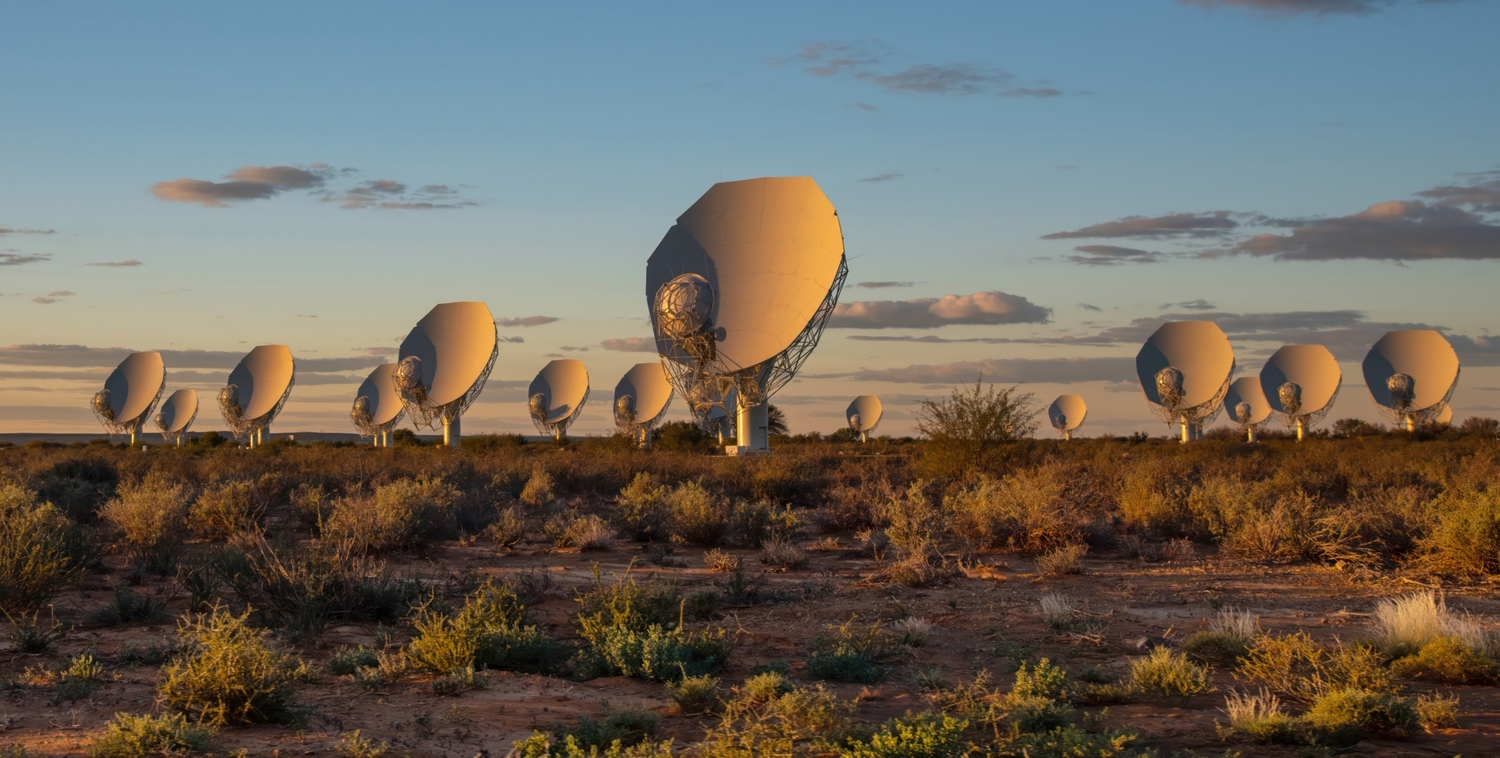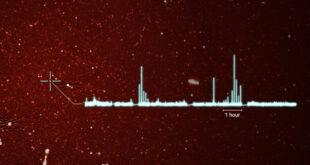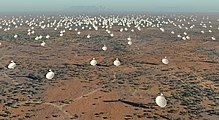
Ibadan, 19 January 2024. – An international team of astronomers, led by researchers from the Max Planck Institute for Radio Astronomy, have used the MeerKAT radio telescope to discover a mysterious object in the globular cluster NGC 1851.
The massive object is heavier than the heaviest neutron stars known and simultaneously lighter than the lightest black holes known and is in orbit around a rapidly spinning millisecond pulsar. As a result, researchers believe this could be the first discovery of the much-coveted radio pulsar–black hole binary; a stellar pairing that would allow new tests of Einstein’s general relativity.
By using the MeerKAT radio telescope in South Africa, in combination with powerful instrumentation by engineers at the MPIfR in Bonn, Germany, they were able to detect faint pulses from one of the stars. They subsequently identified it as a radio pulsar, a type of neutron star that spins rapidly and shines beams of radio light into the Universe like a cosmic lighthouse.
Speaking on the discovery, Paulo Freire, of the MPIfR said, “Whatever this object is, it is exciting news. If it is a black hole, it will be the first pulsar–black hole system, which has been a Holy Grail of pulsar astronomy for decades. If it is a neutron star, this will have fundamental implications for our understanding of the unknown state of matter at these incredible densities.”
Likewise, Arunima Dutta, one of the authors, added, “Uncovering the true nature of the companion will be a turning point in our understanding of neutron stars, black holes, and whatever else might be lurking in the black hole mass gap.”





